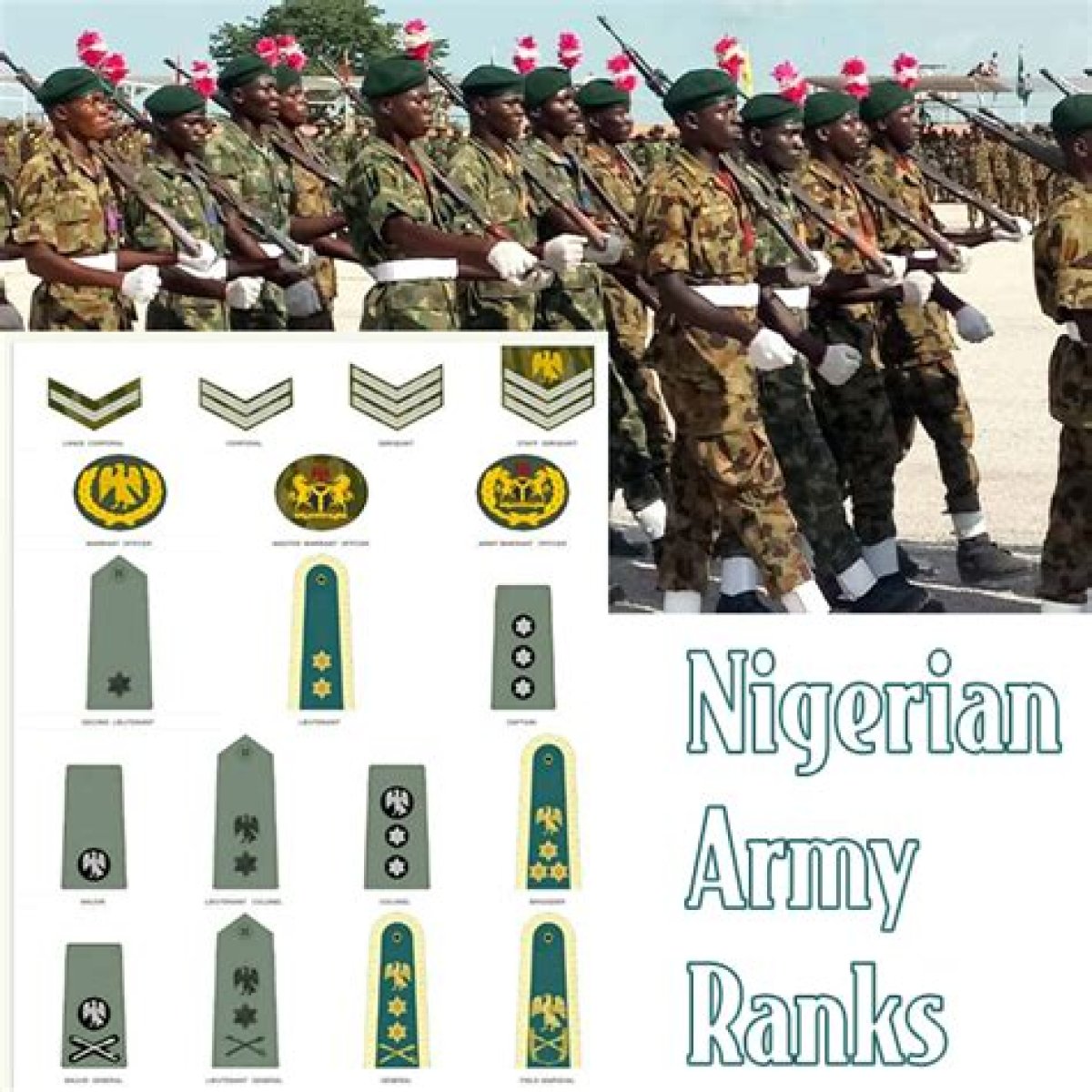When it comes to the military in Nigeria, rank plays a crucial role in determining the hierarchy and responsibilities of individuals within the armed forces. Understanding the rank structure is essential for both military personnel and civilians alike. Let's delve into the ranks in the Nigerian military and how they are structured.
The Nigerian military ranks are divided into two categories: commissioned officers and non-commissioned officers. Commissioned officers are individuals who have received a formal commission from the President of Nigeria and are responsible for commanding troops and making strategic decisions. Non-commissioned officers, on the other hand, are enlisted personnel who hold positions of authority but do not hold a commission.
Commissioned officers in the Nigerian military start with the rank of Second Lieutenant and progress through the ranks based on merit and years of service. The highest rank a commissioned officer can attain is that of a Field Marshal. Non-commissioned officers, on the other hand, start with the rank of Private and can progress through the ranks to become a Warrant Officer.
Some of the key ranks in the Nigerian military include Lieutenant, Captain, Major, Colonel, Brigadier General, Major General, Lieutenant General, and General. Each rank comes with its own set of responsibilities and duties, with higher ranks typically commanding more troops and having greater strategic decision-making authority.
The Nigerian military places a strong emphasis on discipline and respect for rank. Saluting superiors, following orders, and adhering to the chain of command are all essential aspects of military life in Nigeria. Failure to respect rank can result in disciplinary action and consequences for military personnel.
Rank in the Nigerian military is also closely tied to pay and benefits. Higher-ranking officers receive higher salaries and may be eligible for additional perks and privileges. This serves as an incentive for military personnel to work hard and advance through the ranks.
Overall, the rank structure in the Nigerian military plays a critical role in maintaining order, discipline, and effectiveness within the armed forces. By clearly defining the hierarchy and responsibilities of individuals, the military can operate efficiently and carry out its mission effectively.
Aspiring military personnel in Nigeria must understand the rank structure and work diligently to advance through the ranks. By demonstrating leadership, dedication, and a commitment to excellence, individuals can progress in their military careers and make a positive impact within the Nigerian armed forces.
For more information on rank in the military in Nigeria, individuals can consult official military sources, speak with current or former military personnel, or seek guidance from military recruiters. Understanding the rank structure is a crucial step in pursuing a career in the Nigerian military and serving the country with honor and distinction.
Overall, the rank structure in the Nigerian military is a key aspect of military life in the country. By recognizing and respecting rank, individuals can contribute to the cohesion and effectiveness of the armed forces, ultimately helping to safeguard the security and well-being of the nation.
rank in military in nigeria, nigeria military ranks and salary, nigerian army ranks and symbols, nigerian navy ranks and salary, nigerian air force ranks and salaries, nigeria army ranks and symbols, nigeria army ranks and salary, nigerian military ranks and symbols, nigerian army ranks and salary, nigeria police rank and salary
